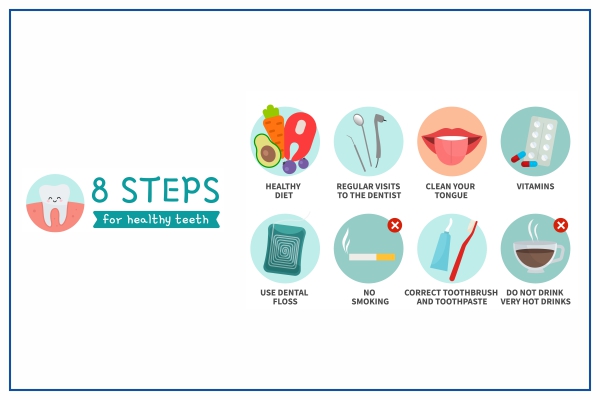
Dental Harmony: Essential Tips for Tooth Care
Maintaining optimal oral health is a cornerstone of overall well-being. Explore essential tips for tooth care that contribute to a healthy and radiant smile. Learn how simple practices, a balanced diet, and regular dental check-ups can enhance your dental harmony.
Daily Oral Hygiene Routine: The Foundation of Tooth Care
Establishing a daily oral hygiene routine is fundamental to tooth care. Brushing your teeth twice a day with fluoride toothpaste helps remove plaque and prevent cavities. Additionally, incorporating flossing into your routine cleans between teeth, reducing the risk of gum disease. A consistent daily routine sets the stage for a healthy smile.
Proper Brushing Technique: Precision for Effective Cleaning
While brushing is a common practice, using the correct technique ensures effective cleaning. Brush in gentle, circular motions to reach all surfaces of your teeth and gums. Pay attention to the back of your mouth, tongue, and roof of your mouth. Proper brushing removes bacteria and helps maintain tooth enamel.
Choosing the Right Toothbrush and Toothpaste: Personalized Care
Selecting the right toothbrush and toothpaste is essential for personalized care. Choose a toothbrush with soft bristles to avoid damaging your enamel and gums. Fluoride toothpaste strengthens enamel and protects against cavities. Tailoring your choices to your dental needs enhances the effectiveness of your daily oral care routine.
Balanced Diet: Nutrients for Dental Health
A balanced diet plays a crucial role in tooth care. Foods rich in calcium, phosphorus, and vitamins contribute to strong teeth and gums. Incorporate dairy products, leafy greens, and crunchy fruits and vegetables into your diet. These choices promote overall dental health and support your oral care efforts.
Limiting Sugary and Acidic Foods: Protecting Tooth Enamel
Excessive consumption of sugary and acidic foods can contribute to tooth decay and enamel erosion. Limit your intake of candies, sodas, and acidic fruits. When consumed, rinse your mouth with water or chew sugar-free gum to neutralize acids. Mindful choices safeguard your enamel and preserve dental harmony.
Regular Dental Check-ups: Preventive Maintenance
Regular dental check-ups are a cornerstone of preventive dental care. Professional cleanings remove plaque and tartar buildup that brushing and flossing may miss. Dental professionals can detect early signs of issues such as cavities or gum disease, allowing for prompt intervention and maintaining your dental harmony.
Good Habits for Gum Health: Beyond Just Teeth
Tooth care extends beyond the teeth to encompass gum health. Gently massaging your gums with a soft toothbrush promotes circulation and reduces the risk of gum disease. Regular flossing helps prevent gum inflammation and maintains the health of the supporting structures around your teeth.
Avoiding Tobacco: Protecting Oral Health
Tobacco use poses significant risks to oral health. It can lead to gum disease, tooth discoloration, and even oral cancer. Quitting tobacco contributes to improved oral health and lowers the risk of dental issues. Consult with your healthcare provider for support and resources to quit smoking or chewing tobacco.
Proper Hydration: Saliva as a Natural Protector
Staying properly hydrated is a natural way to support tooth care. Adequate saliva production helps neutralize acids, cleanse the mouth, and remineralize enamel. Drinking water throughout the day promotes saliva flow and contributes to a healthy oral environment.
Educational Resources for Tooth Care: Empowering Your Smile
To delve deeper into the world of tooth care, visit Studentals.net. Explore educational resources, articles, and tips to empower your smile. Comprehensive knowledge combined with consistent oral care practices ensures that your dental harmony remains a vital component of your overall well-being.

















